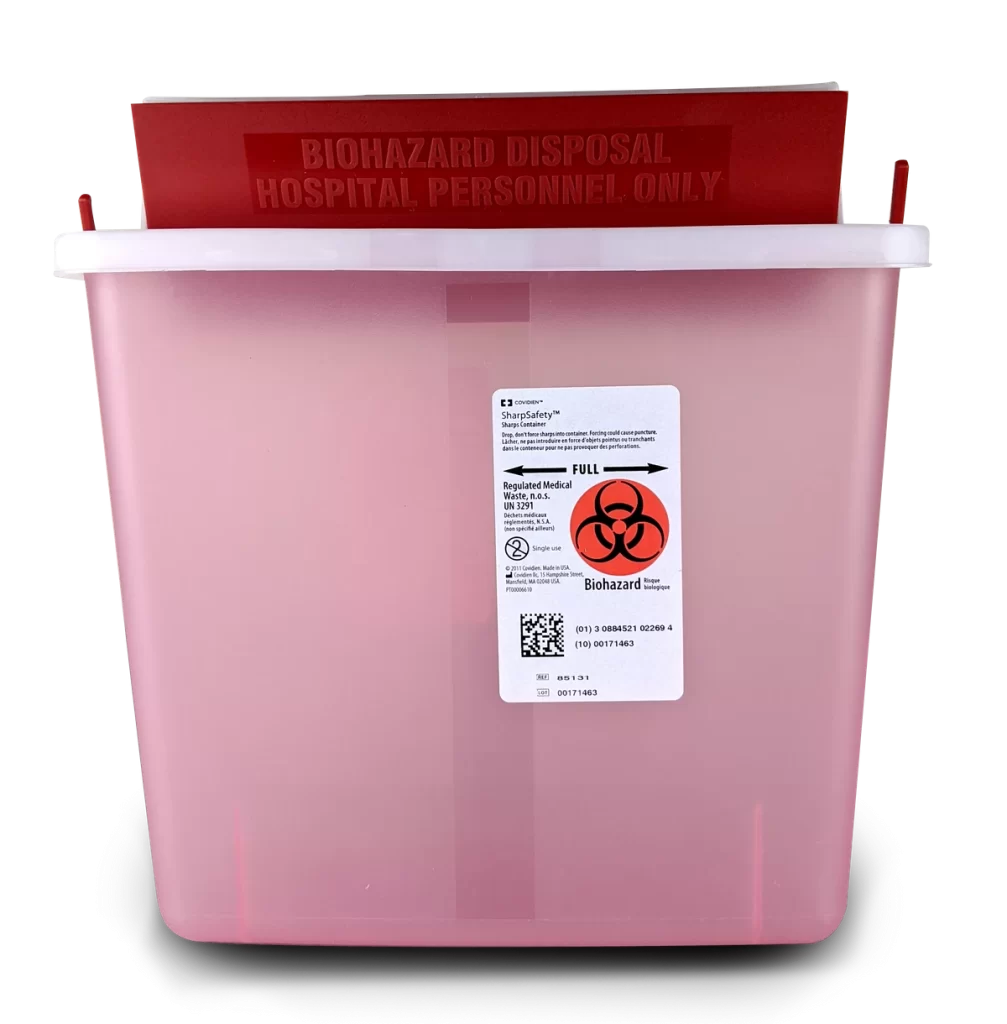Oregon Regulated Medical Waste Compliance Standards
In Oregon, two state entities – the Oregon Department of Environmental Quality (DEQ), and the Oregon Health Authority (OHA) – are the primary regulators of medical waste. DEQ oversees the management and disposal of medical waste under Oregon’s solid waste laws. This includes ensuring that medical waste is handled in compliance with environmental standards, treated appropriately, and disposed of in permitted facilities. Additionally, DEQ provides guidance on waste segregation, transportation, and landfill requirements.
OHA plays a key role in regulating healthcare facilities that generate medical waste. It ensures that these facilities follow proper procedures for the handling, storage, and disposal of infectious and hazardous waste, with a focus on protecting public health. Medical waste in Oregon is also subject to federal regulation by the Occupational Safety and Health Administration (OSHA), the Environmental Protection Agency (EPA) and the U.S. Department of Transportation (DOT).
How Oregon Defines Medical Waste
Oregon broadly defines “medical waste” in section OAR 340-093-0030 of its administrative rules as “solid waste that is generated as a result of patient diagnosis, treatment, or immunization of human beings or animals.” A related term, “infectious waste,” is defined as “biological waste, cultures and stocks, pathological waste, and sharps” as they are defined in section 459.386 of its Revised Statutes.
Medical Waste Generators in Oregon
Although Oregon’s laws, statutes and regulations do not specifically identify the types of medical waste generators subject to regulation, based on the definitions, generators typically include healthcare facilities, laboratories, veterinary clinics, and other entities involved in medical or research activities that produce such waste.
Storage and Handling Regulations
Storage and handling of medical and infectious waste are governed by specific regulations to ensure public health and environmental safety. DEQ outlines the methods required for handling and storage requirements for different waste stream types at the web page located at https://www.oregon.gov/deq/hazards-and-cleanup/hw/pages/infectious-waste-management.aspx.
Storage Duration:
- General Rule: Infectious waste must be treated or disposed of within 7 days of generation.
- Refrigeration Exception: If the waste is refrigerated at temperatures between 33°F and 48°F, or frozen at temperatures below 32°F, it may be stored for up to 30 days prior to treatment or disposal.
To summarize these requirements, pathological waste must be contained in red bags and disposed via incineration; biological waste must be contained in red bags and disposed via incineration or sterilization; sharps must be contained in red, puncture-proof bags and disposed via incineration, sterilization, or disposal in a segregated are of a permitted landfill; cultures and stocks must be contained in red bags and disposed via incineration or sterilization.
Oregon DOH’s provides answers to common questions regarding infectious waste, including definitions, treatment methods, and regulatory guidance at the web page located at https://www.oregon.gov/oha/ph/diseasesconditions/communicabledisease/pages/infectiouswastefaq.aspx. Additionally, Oregon’s Administrative Rules (OAR) Chapter 333, Division 56 define terms related to infectious waste and prescribe acceptable methods of storage and treatment, and Oregon’s Revised Statutes (ORS) Chapter 459 – Solid Waste Management provide supplementary definitions and regulations pertaining to the management of infectious waste in Oregon.
Disposal Regulations
Oregon’s DOH law defines four basic kinds of infectious waste: pathological waste, biological waste, cultures and stocks, and sharps. Disposal requirements are listed in Oregon Revised Statue (ORS) 459.386 through 459.405:
- Pathological wastes, e.g., anatomical body parts, must be incinerated unless the Department of Environmental Quality determines that incineration is not reasonably available within a “waste shed.”
- Biological wastes, e.g., blood and blood products or body fluids, must be incinerated, autoclaved or treated by other methods approved by the Oregon Health Authority. However, liquid or soluble semi-solid biological wastes may be discharged into 1) a sewage treatment system that provides secondary treatment or 2) a septic tank system.
- Cultures and stocks include etiologic agents and associated biologicals, including specimen cultures and dishes and devices used to transfer, inoculate and mix cultures, wastes from production of biologicals, sera and discarded live attenuated vaccines. “Cultures and stocks” do not include throat and urine cultures.
- Sharps must be incinerated, autoclaved, or treated by other methods approved by the Oregon Health Authority. They may be taken without other treatment to a landfill in a rigid, puncture-resistant, leak-proof container, as long as the container is segregated from other waste, is transported without compaction, and is placed in a segregated area of the landfill. For residents of Clackamas, Multnomah or Washington counties, sharps containers may also be accepted at Metro transfer stations.
All medical waste generators in Oregon are responsible for maintaining compliance with local, state, and federal regulations governing the management, storage, treatment, and disposal of medical waste. This content is provided for general informational purposes only and is intended as a high-level overview. For the most current and detailed requirements, please refer to the applicable regulatory authority in your jurisdiction.



